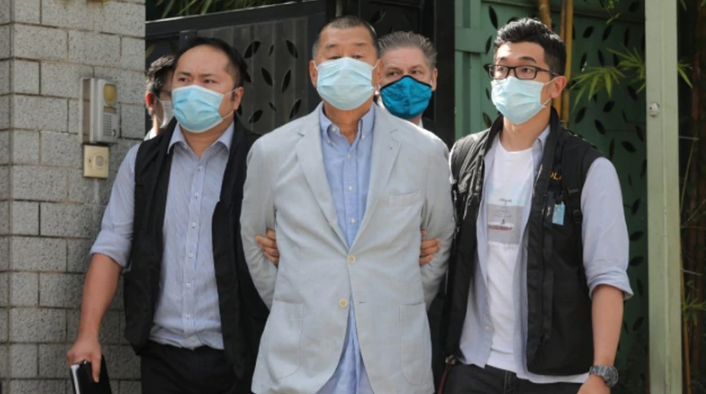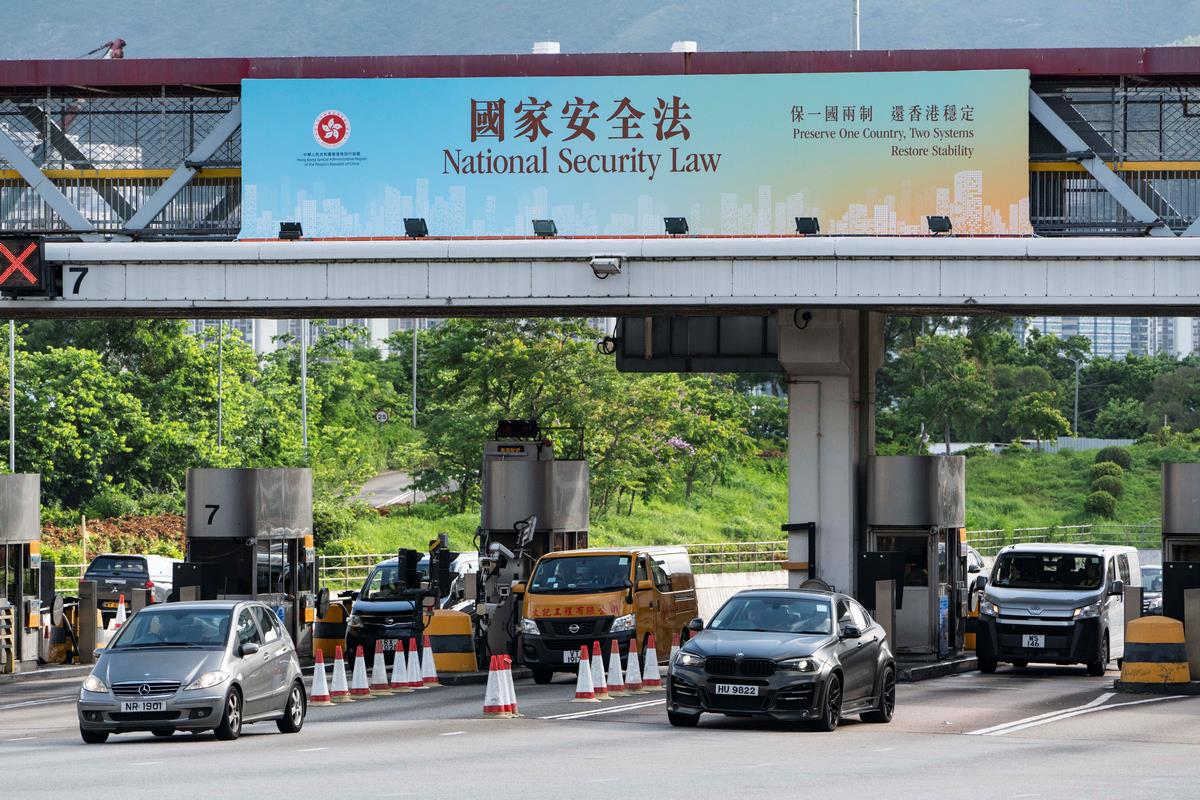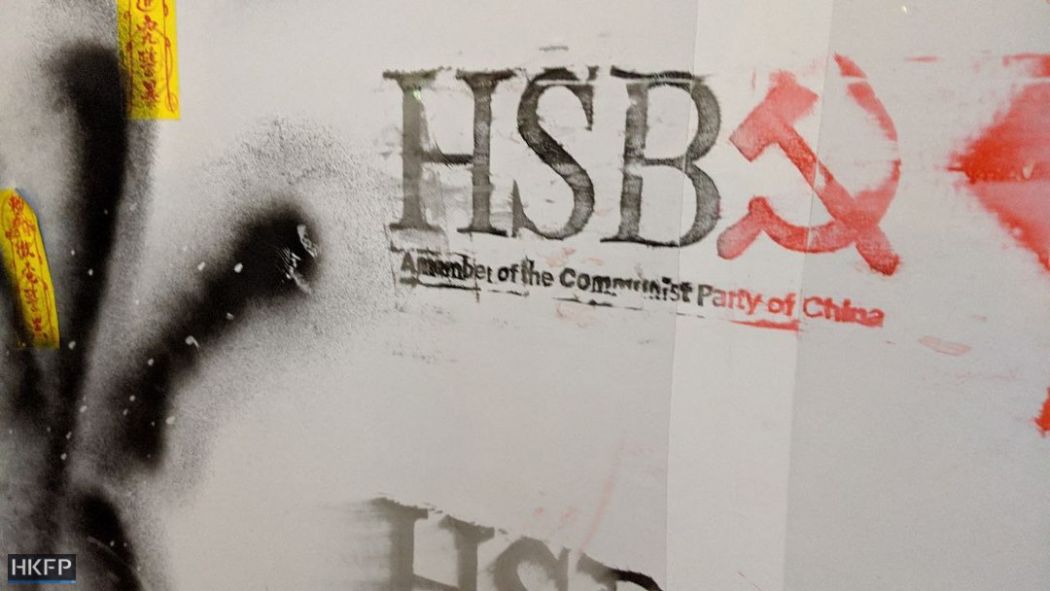By Joey Siu
After former Hong Kong opposition lawmaker Ted Hui Chi-fung announced his self-exile on December 3, he found that at least five bank accounts with HSBC, Bank of China (Hong Kong) and Hang Seng Bank that belonged to him, his wife and his parents had been frozen.
One day after the case was made public, HSBC unfroze the accounts. Ted Hui’s family immediately transferred all money in the account elsewhere “out of complete distrust of the bank.” HSBC once again froze the accounts on December 7. Hong Kong police confirmed the same day that they ordered the freezing of the accounts to investigate suspected money- laundering involving HK$850,000.

Under Hong Kong’s anti-money laundering legislation, once the police force “reasonably suspects the funds to be proceeds of an indictable offence,” it can ask banks to freeze accounts for investigative purposes.
However, Hui’s case is clearly one of political retaliation through economic oppression — and we can expect more frequent use of economic coercion against dissidents in Hong Kong.
This is not the first time that the Hong Kong government has trumped up economic charges against iconic political figures and activists.
Back in August, activist Andy Li, media tycoon Jimmy Lai, his two sons and two of Next Digital’s senior managers were arrested under the new National Security Law, alongside allegations of money laundering and conspiracy to defraud. Earlier this month, Lai was again arrested and charged with fraud. This time, bail was denied and he will remain behind bars until a court hearing in April next year.

The Hong Kong government is, on the one hand, trying to undermine the reputation of famous dissidents and taint the pro-democracy movement. On the other hand, the regime is attempting to cut off funding for private litigation against police brutality, for judicial reviews of unjust government decisions and for civil advocacy efforts.
With the imposition of the new National Security Law, these dirty tricks became even easier.
As stated in the “Implementation Rules of Article 43 of the Law of the PRC on Safeguarding National Security in the HKSAR” under “Rules Relating to Freezing, Restraint, Confiscation and Forfeiture of Property,” Rule 3(1) states: “Where the Secretary for Security has reasonable grounds to suspect that any property held by any person is offence-related property, the Secretary may, by notice in writing specifying the property, direct that a person must not, directly or indirectly, deal with the property except under the authority of a licence granted by the Secretary.”

The Law empowers the Secretary for Security to order the freezing of assets without recourse to any other authority, including the courts. Given the vagueness of the wording, such an action will be applicable not only to people charged under the National Security Law, but also those charged under any other Hong Kong law, as long as the Secretary for Security finds it to be “a threat to national security” — even without an indictable offence.
It is also foreseeable that families, colleagues, or anyone else who had a relationship with arrestees risk having their own assets frozen.
Apart from Hui and Lai, the accounts of the Good Neighbour North District Church and Spark Alliance — two organisations that provided assistance to Hong Kong protesters — were also frozen by HSBC. It would not be surprising to see more banks, financial institutions and corporations kow-tow to Beijing. The one way to hold them accountable is through sanctions.

The rule of law, an independent judiciary and a high degree of autonomy are what made Hong Kong a renowned international financial centre. Having benefited from the stable and free market of Hong Kong, these multinational companies generated great wealth over the years. With great profits come great responsibility. No company should, on one hand, enjoy the convenience of freedom and democracy and on the other hand, assist an authoritarian regime in suppressing it.
Foreseeing that economic coercion will happen more often in Hong Kong, it is crucial for the international community to send a clear signal to the world that no one should ever assist the Chinese Communist Party in its suppression of dissidents, and that those who do will not escape consequences.
Joey Siu is an activist, an Associate of Hong Kong Watch and Advisor to the Inter-Parliamentary Alliance on China.
Support HKFP | Policies & Ethics | Error/typo? | Contact Us | Newsletter | Transparency & Annual Report | Apps
| HKFP is an impartial platform & does not necessarily share the views of opinion writers or advertisers. HKFP presents a diversity of views & regularly invites figures across the political spectrum to write for us. Press freedom is guaranteed under the Basic Law, security law, Bill of Rights and Chinese constitution. Opinion pieces aim to point out errors or defects in the government, law or policies, or aim to suggest ideas or alterations via legal means without an intention of hatred, discontent or hostility against the authorities or other communities. |
Help safeguard press freedom & keep HKFP free for all readers by supporting our team

More HKFP OPINION:
HKFP has an impartial stance, transparent funding, and balanced coverage guided by an Ethics Code and Corrections Policy.
Support press freedom & help us surpass 1,000 monthly Patrons: 100% independent, governed by an ethics code & not-for-profit.










